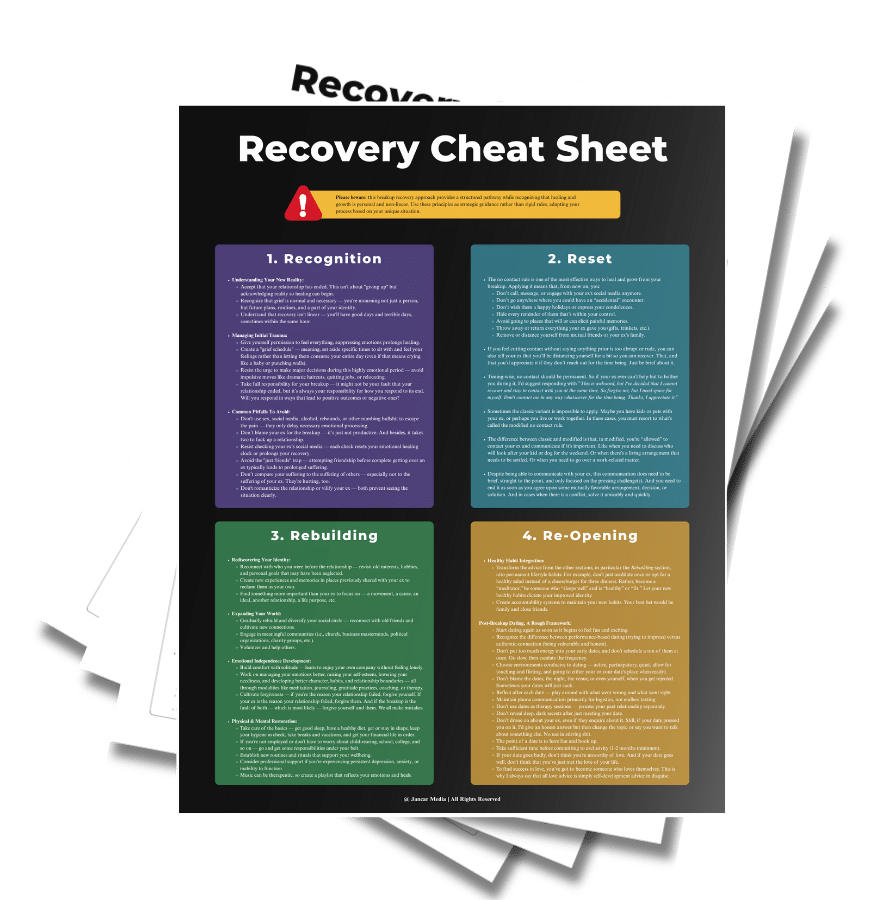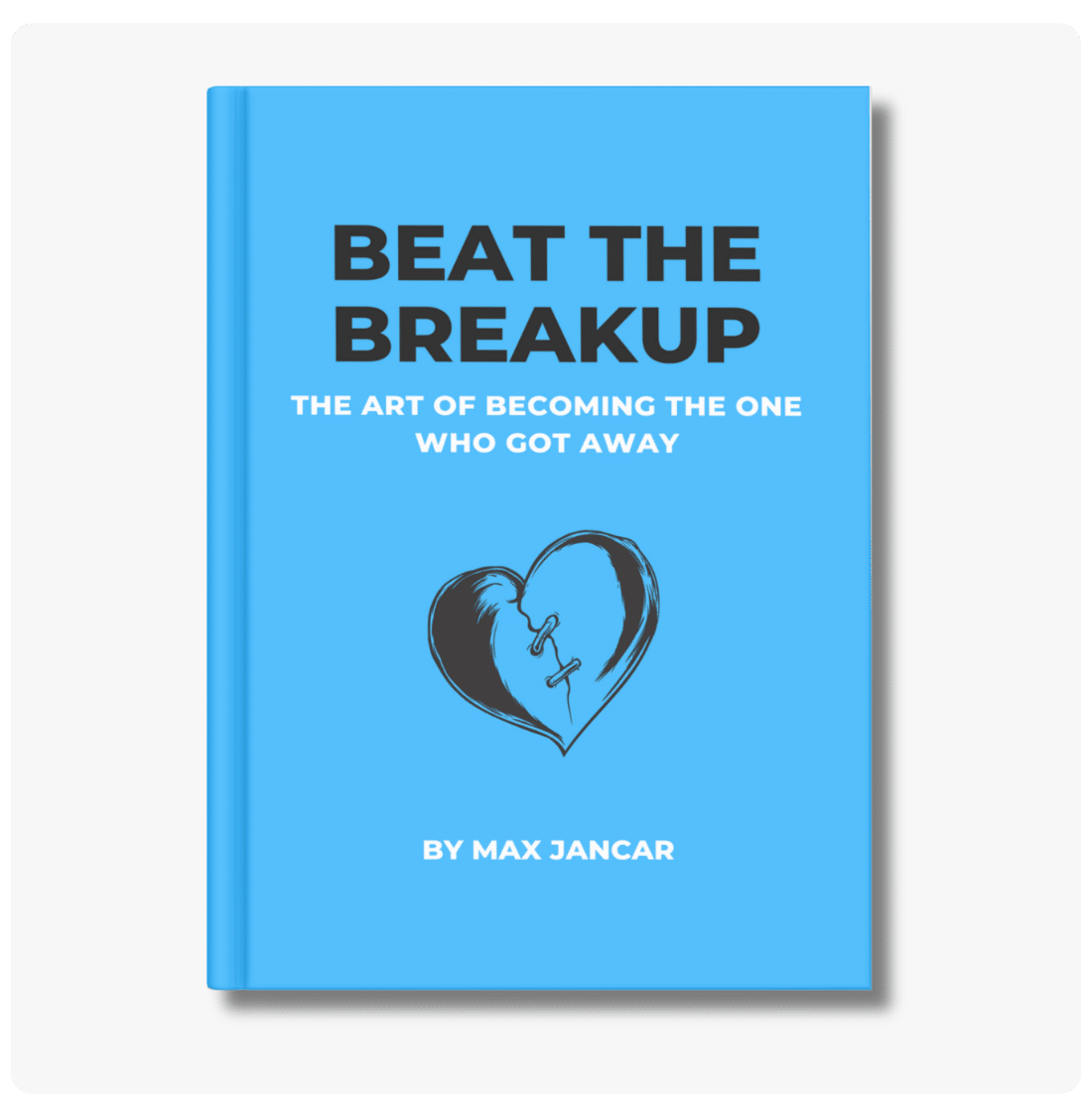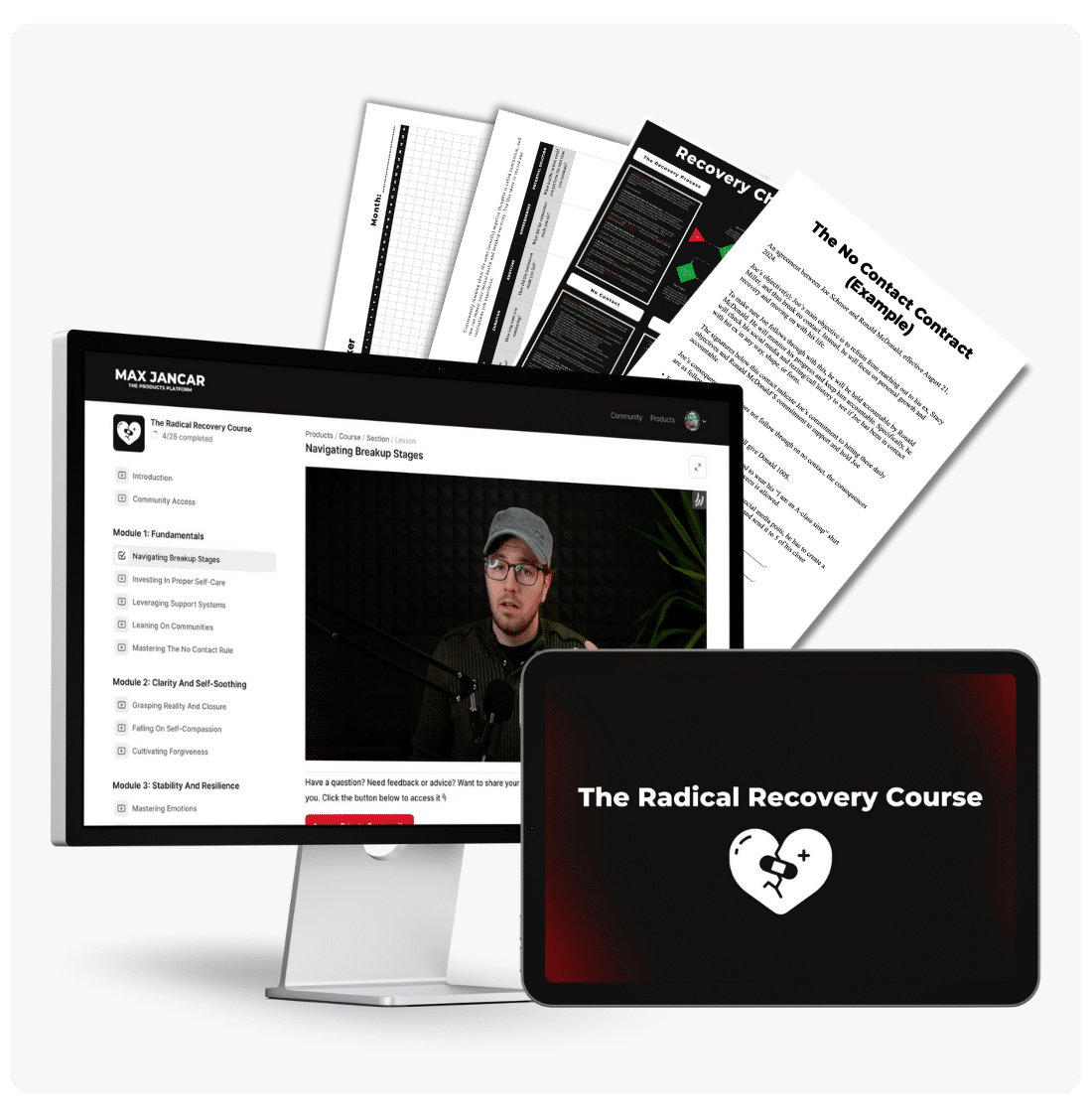Click play to listen to this article.
I never had the privilege to dump someone. In all my relationships — the short and the long, the ones resembling wild roars of fireworks or slow, gradual burns — I was always the dumpee. However, I did receive loads of emails over the years from people on the opposite end: the dumpers.
To my surprise, they were, on average, in just as much pain as the dumpees. Their reaction to the whole thing was nearly identical! They also gulped obscene amounts of food to cope with grief. They also flooded their kidneys with liquor to escape the pain. They also went on a rebound-like dating rampage to lose themselves in the arms of a stranger and, for at least a moment, forget about their ex.
Regardless of the nature of your breakup, it hurts. But why does it hurt? Specifically, why do breakups hurt even when you wanted one more than anything? I’ll start by answering this question. But in the end, I’ll also briefly tackle some additional questions people keep emailing me about related to breakup hurt.
A guide to breakup recovery based on embracing discomfort, extracting wisdom from dark moments, and healing through evidence-based practices.
Order Your CopyReason #1: Because Breakups Shatter identities
When we lose our significant other, they usually take a part of us with them, that is, a part of our identity. This act of unconscious and unavoidable thievery is also the catalyst for our emotional turmoil.
This is far from a simple idea, so let me try and make it clear.
When you’re romantically committed to someone for an extended period, your identities, that is, your beliefs, goals, and values, begin to merge. Next, you even start forming new shared beliefs, goals, and values through mutually intense, emotional, and meaningful experiences — the good and the bad.
This fusion process makes it possible for two people to develop a unified relationship or couple identity. In other words, an identity created by two separate but alike ones. (1)
While you may think that developing a shared identity is toxic, it’s actually not. For one, you can’t help but create a shared identity with someone you love and vice versa. And as long as the couple doesn’t include two toxic fuckwads who derive happiness solely from each other, but rather two mature individuals, already happy and content with themselves, their identity will likely be healthy, fulfilling, and most importantly, meaningful. (2)
We can also argue that all of our relationships, even the ones we hold towards health, exercise, or our career, give our lives meaning and consequentially make us feel better about ourselves. But I’m getting carried away at this point.
Let’s pretend you and your ex formed a pretty tight shared identity — you both value your relationship, you’ve worked on it diligently, and a deep friendship was blossoming under all the romance. Chances are, this was actually how things unfolded. Now, think about this: one random day, that same relationship that fuelled your life with meaning vanished.
At that point, it’s entirely reasonable to feel unexplainable suffering, to begin questioning life and its significance, to start obsessing over your ex or overeating or overworking, or under-sleeping.
Facts like whose the dumper, which the dumpee, who was toxic, who was healthy, and so forth, are all irrelevant, for losing a shared identity hurts regardless of the nature of your relationship. After all, it was still yours.
Generally speaking, the more meaning and fulfillment you attached to your past relationship, and the more emotionally connected you were to your ex, the more empty and hopeless you feel once that relationship ends — that shared identity ends. Ultimately, this “loss of identity and meaning” is the central reason why breakups hurt, even when you wanted it. (3)
You tackle this loss of meaning by finding other types of meaning. Maybe you derive a lot of it from your career, child-rearing, tight family relationships, a bursting social life, whatever. The more sources of meaning you can find and commit to, the quicker you’ll fill the holes in your shattered identity and feel like yourself again.
Reason #2: Because Breakups Cause Social exclusion
Humans are social animals by nature. We are hard-wired to form relationships with others to feel safe and avoid going insane. Creating sturdy relationships is vital for our mental health, emotional well-being, and general survival. Take a newborn, for instance. Would it survive without a caretaker to teach it how to wipe its ass? Probably not. (4)
And no, I’m not talking out of my ass here. There’s a legit study that proves how indispensable meaningful relationships are and why breakups hurt so much. (5)
Here’s how it goes: some sciency peeps examined the responses of several married women when they were threatened with an electric shock. And since this was an fMRI study, the participants were hooked up to brain scanners that measured their responses to that electric threat.
There were three scenarios in which scientists measured the women’s brain activity. In the first, they held their husband’s hand. In the second, they held a stranger’s hand, and in the last, the women held no hand. The results revealed that the women’s brain activity in scenario one (holding their husbands’ hand) was less active than the brain activity in the other two scenarios.
What’s even more impressive is that the quality of the relationship between the woman test subject and the husband holding her hand influenced the brain scan results. The stronger the relationship between the two was, the less the woman’s brain was affected by the electric shock threats.
Therefore, judging by how important relationships are for humans, it’s no surprise that it stresses the hell out of us when a significant one ends, no matter who did the deed. At that point, anything threatening elicits a far more notable emotional reaction from us than it would if we still had a partner to latch on to.
Here’s how to counteract the entire thing and minimize potential breakup pain in this aspect: socialize. The worst thing you can do after a breakup is lock yourself into a room and sob all day and night. Go out. Meet new people. Hang out with friends. Yes, it’s that simple. You’ll feel better afterward.
An online interactive video course that teaches you how to get past a breakup so you can create a new possibility for love (with your ex or someone new).
Get Instant AccessReason #3: Because Breakups Cause Shame And Guilt
Do you know the feeling when you’re terrified to tell anyone about your breakup and the fact that you dumped your partner when you expected your relationship would stand the test of time? The thought of sharing this with someone mortifies you. It causes you to want to curl up in a ball, pull a blanket over your head, and disappear from the face of the Earth.
That feeling is shame — feeling disappointed —or even worthlessness— with yourself for not living up to your ideal expectations. Feeling shame is feeling bad about who you are. (6)
Shame is a nasty little bugger. We all feel it from time to time, and it’s a huge reason our breakup hurt so much. It can also fuck us up big time! It’s linked to anger issues, hostility, emotional volatility, poor physical health, narcissistic tendencies, low self-esteem, and everyone’s favorite, depression. (7)
Yikes!
Now, guilt is very similar to shame — it translates to feeling bad about something that you did. And interestingly, shame can develop from guilt left unchecked. So when you reflect on whether you were too harsh (or not harsh enough) when you dumped your partner, when you regret your decision for breaking up, or when you question it extensively, all of that leads to guilt. (8) (9)
Truth is, none of us are free of guilt and shame. Sure, some people feel less of them after dumping their partner. Other people feel more. But in any case, whenever you feel it, the best thing to do is to practice vulnerability.
Open yourself up emotionally instead of closing off. Face your fears and insecurities instead of burying them under the rug and pretending they’re not there. Be willing to get hurt for the sake of authentic — often even therapeutic — expression.
It’s the hiding of your shame and guilt that makes your breakup so damn painful. For in that hiding, you deflect your inherent responsibility for life. Therefore, do the opposite. Expose your shame and guilt. Counterintuitively, it’s this exposé that leads to increased self-esteem, improved well-being, and less pain. (10)
Reasons #4: Because Breakups Cause Uncertainty
This is probably the most widespread reason why breakups hurt, and it often leads people to sabotage their recovery with questions like:
- Was I not good enough for my ex?
- Why couldn’t my ex just be different?
- Were we incompatible or did I just suck?
- Was I a horrible boyfriend/girlfriend?
The more you ask yourself these things, the deeper you’ll settle in uncertainty. Not to mention anxiety and confusion! Then those feelings can eventually produce a nasty inner critic and a pretty sickening form of self-talk. And as a result, you’d quickly slump into depression and misery. (11) (12) (13)
The solution? Learning to be okay with uncertainty. Because look… it’s never going away. Certainty itself is an illusion. The truth is that almost nothing in life is certain. Therefore the best way to tackle the issue is to get good at feeling bad.
Put another way, the more you avoid negative emotions, the more those emotions will paradoxically screw you over at some point. Ignoring the fact that you’re grieving will only make you more miserable. Ignoring the fact that you’re angry will just make you explode at some later point. Ignoring the fact that you feel uncomfortable will only make you more uncomfortable.
So turn toward your emotions, not away from them. Turn toward uncertainty, and try to accept it — instead of running away from it, trying to get certainty.
Reasons #5: Because Breakups Cause Physical Pain
Imagine two scenarios. In the first, you just spilled yourself with a burning Starbucks brew. In the second, someone showed you a photo of a recent ex. On the surface, these two scenarios seem pretty different. But when we examine the underlying pain beneath each one, we can uncover a funny similarity: both generate an identical sort of suffering. (14)
There have been numerous studies concluding that the same brain parts activated when you’re dealing with physical pain are also activated when dealing with the emotional pain of a breakup. And then there were even studies that backed up those studies. (15) (16) (17)
One found that our brain releases natural painkillers — the same painkillers released amid physical pain — when we’re faced with rejection. Another one explained the profound connection between the physical and emotional pain of breakups within our expressions.
For instance, let’s say you spill yourself with boiling-hot coffee. How do most people describe that scenario? Well, they often say it was like ” a slap in the face, ” or they say, “it hurt like hell.” Interestingly, when we’re heartbroken, we often say the same things about our breakup. We describe physical pain as emotional and vice versa.
Our linguistic patterns are also not exclusive to only English. Researchers proved that many cultures worldwide use the same or near-identical terminology to describe their emotional and physical pain. All of this shows how breakup pain is comparable to physical pain, particularly that of a hot coffee spill.
The problem here is that, there’s no specific way to cope with this cause for breakup pain. It mostly boils down to what I keep harping on in all my articles: meditation, journaling, therapy, and so on. So go and do that.
(Optional) Top Questions About Why Do Breakups Hurt
How Long Is A Breakup Supposed To Hurt?
The amount of time it takes to get over a breakup can vary depending on the person and the circumstances of their relationship. Some people may be able to bounce back quickly and move on, while others may take longer to heal. In general, the emotional pain of a breakup is expected to be most intense in the first few weeks or months, and it might take you several months or even years to fully get over the relationship.
During this time, it’s normal to experience a range of emotions, including sadness, anger, and feelings of betrayal. These emotions can be overwhelming and can often interfere with your daily life. It’s important to allow yourself time to process these emotions and to seek support from friends, family, or a therapist if you need it.
In some cases, the pain of your breakup can be prolonged or intensified if you’re not able to fully let go. This may be because you’re are still in contact with your ex, or because you’re holding onto hope that the relationship can be salvaged.
Is It Normal To Still Love Someone After A Painful Breakup?
Of course. Love doesn’t just disappear; losing it is a slow, gradual, occasionally grueling process. And sometimes, one that never resolves. That being said, how quickly you fall out of love with your ex largely depends upon the length and nature of your relationship and how used you are to breakups.
So if your relationship ended amicably, lasted only for a few months, and you’ve gone through three other breakups, you’ll probably fall out of love with your ex faster than an average person. Whereas if your relationship ended antagonistically, lasted for years, and you’ve never experienced a breakup before, you’ll fall out of love with your ex slower than an average person.
What Hurts The Most After A Breakup?
After a breakup, the most common source of emotional pain is the sense of loss and abandonment. In other words, a nasty cocktail of social exclusion and lost meaning.
This suffering can be especially difficult if the breakup was unexpected or if you were not prepared for it. Additionally, feelings of rejection and betrayal can quickly grow excruciating if the your ex was unfaithful.
That said, the most painful aspect of a breakup will vary depending on the person and the circumstances of their relationship. The good news, however, is that the way to heal is almost identical for everyone. Click here to read an entire guide on it. Good luck.
This cheat sheet lays out 40+ solutions to overcoming a breakup so you can create a new opportunity for love — be that with your ex or someone completely different.
Get The Free Cheat Sheet


